SHEET METAL FABRICATION
Price 1000 INR/ Piece
SHEET METAL FABRICATION Specification
- Protection Level
- Corrosion Resistant
- Usage & Applications
- Industrial, Electrical Panels, Enclosures, HVAC, Automobile Parts
- Size
- Customized as per requirements
- Coating Material
- Powder Coating / Zinc Coating
- Material
- Mild Steel, Stainless Steel, Aluminium
- Surface Finish
- Smooth / Powder Coated
- Fabrication Service Type
- Custom Metal Fabrication
- Fabrication Product
- Sheet Metal Fabrication
- Fabrication Process
- Laser Cutting, Bending, Punching, Welding
- Design Support
- CAD/CAM Supported
- Thickness Range
- 0.5 mm to 8 mm
- Joint Type
- Spot Welding, MIG, TIG, Riveting
- CNC Machining
- Available
- Tolerance
- ±0.1 mm
- Color Options
- Standard RAL and Custom Colors
- Weight Capacity
- Up to 500 kg per fabricated part
SHEET METAL FABRICATION Trade Information
- Minimum Order Quantity
- 1 Piece
- Main Domestic Market
- Assam, Delhi, Dadra and Nagar Haveli, Arunachal Pradesh, Chhattisgarh, Bihar, Rajasthan, Chandigarh, Daman and Diu, Jharkhand, Odisha, Punjab, Goa, Himachal Pradesh, Jammu and Kashmir, Madhya Pradesh, Tamil Nadu, All India, South India, Andaman and Nicobar Islands, Haryana, Maharashtra, Nagaland, Sikkim, Telangana, West Bengal, Central India, West India, East India, North India, Gujarat, Kerala, Lakshadweep, Mizoram, Karnataka, Manipur, Andhra Pradesh, Tripura, Pondicherry, Uttar Pradesh, Uttarakhand, , Meghalaya
About SHEET METAL FABRICATION
Sheet Metal Fabrication Products
Overview:Sheet metal fabrication involves shaping and manipulating flat metal sheets to create complex and functional parts. These products are made from a variety of metals, including steel, aluminum, copper, and brass, depending on the requirements of the application. The fabrication process involves several techniques such as cutting, bending, punching, welding, and assembling metal sheets to form the final product.
Key Features:
-
Material Variety: Sheet metal can be made from various metals, including mild steel, stainless steel, aluminum, copper, and specialized alloys. Each metal type has unique properties, such as strength, corrosion resistance, weight, and electrical conductivity, making them suitable for different applications.
-
Precision & Customization: Sheet metal fabrication products are made to precise measurements and specifications, offering excellent accuracy and high-quality finishes. Fabrication allows for customization of the dimensions, shapes, and features to meet specific project requirements.
-
Durability: Products made from sheet metal are typically strong and durable, capable of withstanding harsh environments, high temperatures, and heavy loads. The strength of sheet metal products makes them ideal for both structural and functional applications.
-
Versatile Manufacturing Processes: Sheet metal fabrication involves several processes that can be tailored to the needs of the product, such as:
- Cutting: Laser cutting, water jet cutting, or punching are used to create precise shapes and sizes from the metal sheet.
- Bending: Sheet metal is bent using machines like press brakes to achieve desired angles and shapes.
- Welding: For assembly, pieces of sheet metal are welded together using various welding techniques like MIG or TIG welding.
- Stamping: Pressing metal into molds to create specific shapes, especially for high-volume production.
- Forming: Techniques like deep drawing and roll forming are used to create three-dimensional shapes from flat metal sheets.
-
Finish Options: After fabrication, sheet metal products can be treated with various finishes such as powder coating, anodizing, or galvanizing to enhance their appearance, corrosion resistance, and longevity.
Advantages:
-
Strength & Durability: Sheet metal products are known for their strength and ability to withstand wear and tear, making them ideal for industrial, commercial, and automotive uses.
-
Cost-Effectiveness: Sheet metal fabrication is an efficient manufacturing process, especially for producing high volumes of standardized or custom parts. This efficiency often translates into lower production costs.
-
Lightweight: While strong, sheet metal products are often lighter than other materials like solid steel or concrete, which is beneficial in applications where weight is a concern.
-
Design Flexibility: The fabrication process allows for complex, detailed designs, making it possible to create intricate parts for a wide range of applications.
-
Scalability: Sheet metal fabrication is scalable, making it ideal for both prototype and large-scale production runs, allowing businesses to efficiently produce parts for different needs.
Applications:
-
Automotive: Sheet metal fabrication is crucial in manufacturing car body panels, chassis, engine components, and other structural elements. It helps reduce vehicle weight while maintaining strength and durability.
-
Aerospace: The aerospace industry relies on sheet metal fabrication to produce aircraft components such as fuselage panels, wings, and other critical parts that must meet strict weight and safety standards.
-
Construction: Sheet metal is used in the construction of building structures, roofing, and facades, as well as in the production of ducts, panels, and supports for HVAC systems.
-
Electronics: Sheet metal fabrication is used to make enclosures for electronic devices, computer housings, and protective covers for various electronic components.
-
HVAC: The HVAC industry uses sheet metal fabrication for the creation of ducts, vent covers, and air handling units to ensure efficient air flow and climate control in buildings.
-
Industrial Equipment: Many industrial machines and tools are made from sheet metal, including structural components, casings, brackets, and frames for machinery.
Product Variations:
-
Metal Enclosures: Used for housing electrical components, machinery, or electronics, offering protection against external elements.
-
Automotive Parts: Sheet metal parts such as bumpers, panels, chassis, and frames used in vehicle manufacturing.
-
Architectural Panels: Metal sheets fabricated into panels for use in building facades, roofing, and interior features.
-
Machine Parts: Components like brackets, frames, and covers used in machines and equipment for industrial applications.
-
Custom Metal Parts: Custom designs for specific applications, including signage, industrial components, and architectural features.
-
HVAC Components: Ductwork, ventilation panels, and vents that are fabricated to ensure efficient airflow and temperature control.
Common Industries Using Sheet Metal Fabrication:
- Manufacturing
- Automotive
- Construction
- Aerospace
- Electronics
- HVAC (Heating, Ventilation, and Air Conditioning)
- Medical Equipment
Comprehensive Custom Fabrication Services
From concept to completion, our fabrication process leverages advanced CAD/CAM tools for custom designs. State-of-the-art laser cutting, bending, and punching ensure effective material utilization and high repeatability. Our team assists at every stage, making sure your specifications are met with strict adherence to quality standards.
Durable Materials and Advanced Finishes
We manufacture using mild steel, stainless steel, and aluminium to suit various operational environments. The use of powder and zinc coatings not only provides a smooth, professional surface finish but also enhances durability and corrosion resistance, ensuring products stand up to demanding uses.
Versatile Applications Across Industries
Our sheet metal solutions are widely used in industrial setups, electrical panel manufacturing, HVAC equipment, enclosures, and automotive parts. Each project is tailored in terms of size, weight, and finish, accommodating unique requirements for both local and export markets.
FAQ's of SHEET METAL FABRICATION:
Q: How do you ensure accuracy and quality in sheet metal fabrication?
A: We use advanced CNC machining and CAD/CAM design support, ensuring tight tolerances of 0.1 mm. Each fabrication process, such as laser cutting, bending, and welding, is closely monitored for consistent accuracy and exceptional quality.Q: What materials and thicknesses can be used for custom sheet metal parts?
A: We fabricate parts from mild steel, stainless steel, and aluminium, supporting thicknesses between 0.5 mm and 8 mm. This versatility allows us to serve a range of industries and application needs.Q: What joining techniques do you provide for assembly?
A: Our fabrication services include spot welding, MIG and TIG welding, and riveting. Each technique is selected based on component requirements, structural integrity, and application demands.Q: When should I choose a powder coated or zinc coated finish?
A: Powder coating offers a smooth, durable, and visually appealing finish suitable for indoor and outdoor applications. Zinc coating provides excellent corrosion resistance, making it ideal for components exposed to harsh environments.Q: Where are your sheet metal fabrication services applicable?
A: Our services are widely used across industrial sectors, including manufacturing electrical panels, enclosures, HVAC systems, and automobile parts. We cater to customized requirements for both domestic and export markets.Q: What is the process for ordering custom sheet metal parts?
A: Customers typically share their specifications and designs, after which we provide CAD/CAM assistance if needed. We proceed with laser cutting, bending, punching, joining, and finishing as per the agreed design, ensuring on-time delivery and quality assurance.Q: What are the benefits of using your sheet metal fabrication services?
A: Clients benefit from our precise tolerances, wide material options, diverse surface finishes, and complete design support. Our robust processes ensure durable, corrosion-resistant parts that meet stringent application demands in various industries.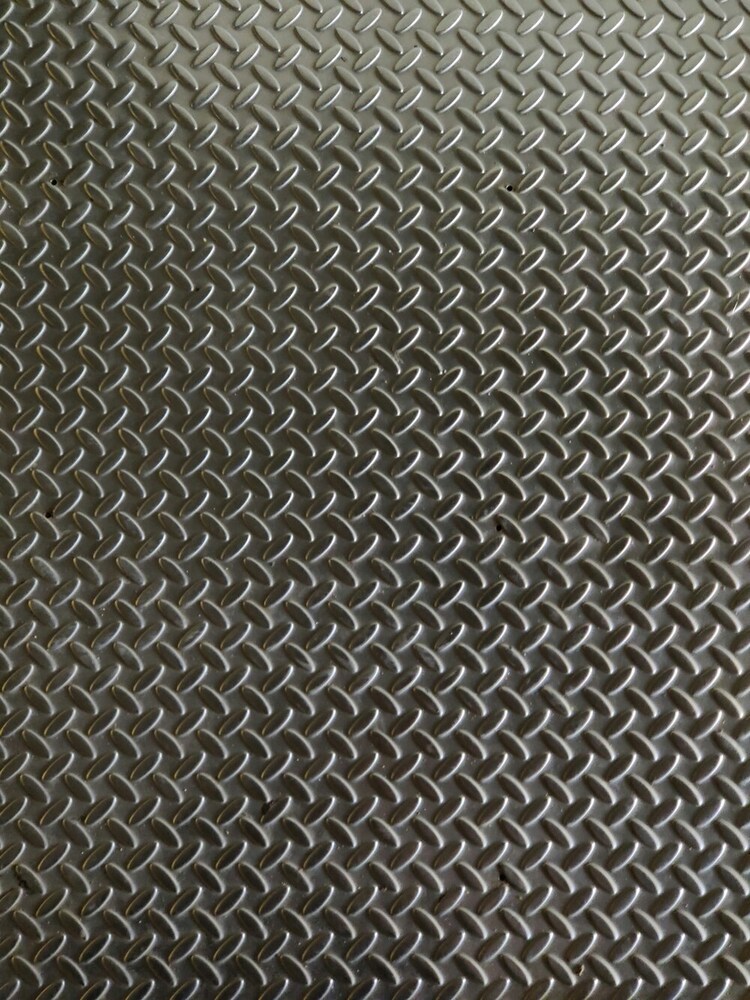

Price:
- 50
- 100
- 200
- 250
- 500
- 1000+
More Products in Stainless Steel Fabricators Category
Sheet Metal Fabricators
Price 180 INR / Piece
Minimum Order Quantity : 1 Piece
Material : Carbide, High Speed Steel, Tungsten Cobalt Alloy
Stainless Steel Housing Bullet
Price 15000.00 INR / Piece
Minimum Order Quantity : 1 Piece
Fabrication Product : Housing Bullet
Fabrication Process : Ni
Fabrication Service Type : Ni
HOPPER CONE FUNNEL
Price 100000 INR / Piece
Minimum Order Quantity : 1 Piece
Fabrication Product : Hopper Cone Funnel
Fabrication Process : Welded and Assembled
Fabrication Service Type : Custom Metal Fabrication
Material : Stainless Steel, Mild Steel, as required
SS Double Door Panel
Price 5600.00 INR / Piece
Minimum Order Quantity : 1 Piece
Fabrication Product : Door Panel
Fabrication Process : N
Fabrication Service Type : Ni

 Send Inquiry
Send Inquiry
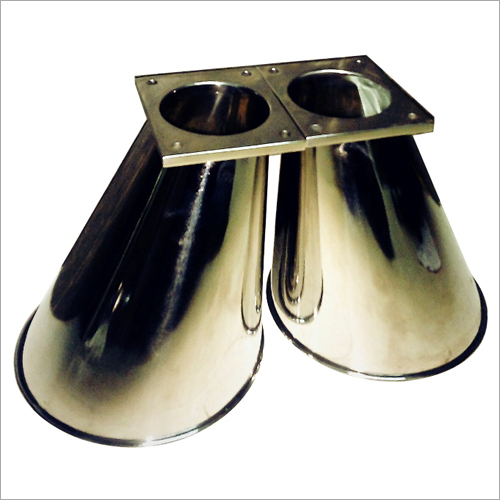
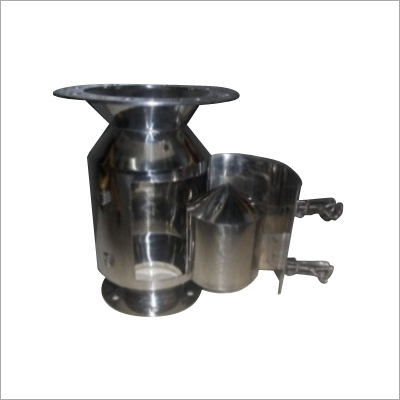
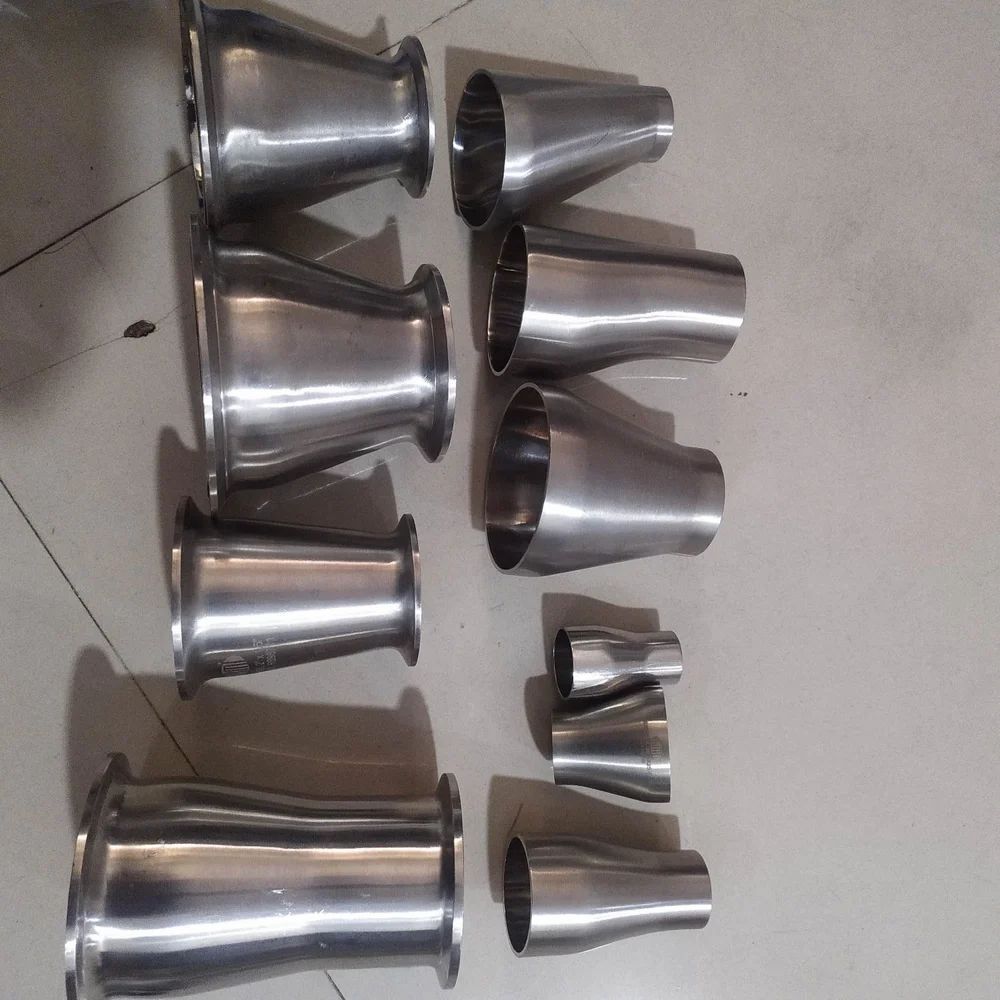
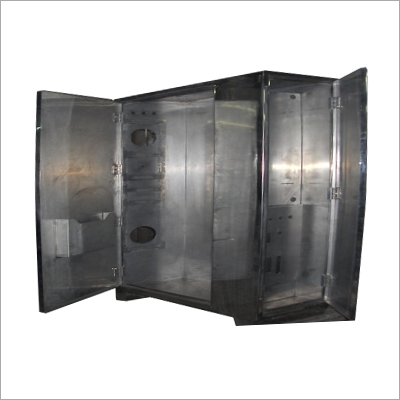



 Send Inquiry
Send Inquiry Send SMS
Send SMS Call Me Free
Call Me Free